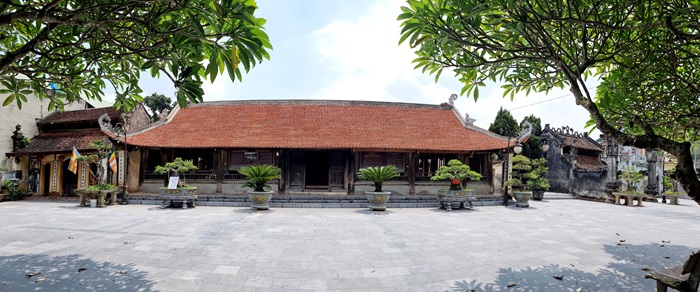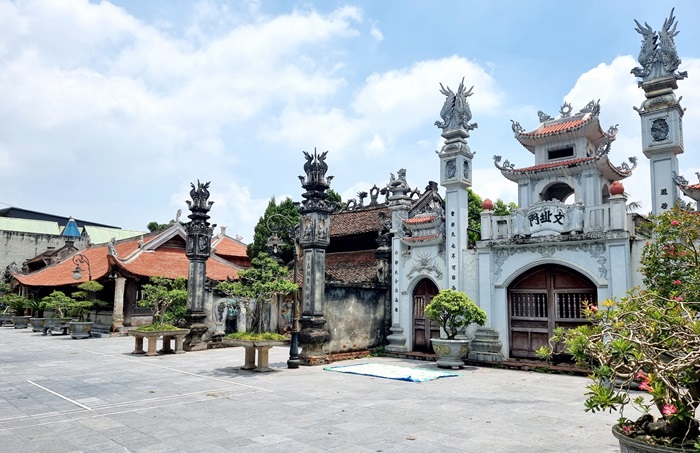Nestled along the picturesque Lo River, the ancient village of Hung Lo (Viet Tri City) preserves many traditional cultural elements linked to the worship of the Hung Kings and the customs of ancient Vietnamese inhabitants. Among these, the traditional festival at Hung Lo Temple is a notable heritage, holding significant importance and a strong influence in the local community’s cultural life.

The Hung Lo Temple Historical and Cultural Site, dedicated to the worship of the Hung Kings who established the first state of the Vietnamese people, was recognized by the Ministry of Culture, Sports, and Tourism as a National Intangible Cultural Heritage in 2022. Therefore, in recent years, with deep respect for the contributions of the Hung Kings, local authorities and residents have overcome difficulties to promote the rich historical and cultural traditions of their homeland, striving to make Hung Lo a bright spot in the province’s tourism landscape.
Nguyen Huu Ich, Chairman of Hung Lo Commune People’s Committee, stated: “The annual organization of the Hung Lo Temple traditional festival contributes to educating about patriotism and gratitude towards our ancestors who established and defended the nation. The Hung Lo Temple Festival not only meets the people’s spiritual needs but also plays a crucial role in preserving and promoting traditional cultural values, contributing to the tourism development of Viet Tri City.”

Located in the over 300-year-old Hung Lo ancient village, Hung Lo Temple has long been embedded in the Vietnamese people’s consciousness with customs and practices related to the worship of the Hung Kings. According to traditional rites, the Hung Lo Temple Festival includes seven main ceremonies: Opening the temple (offering incense, cleaning ritual objects, and tidying up the temple and its surroundings); Wooden Bath Ceremony (fetching water from the temple well for temple use); Sacrificial Ceremony (dressing the deity’s tablet); Procession Ceremony (carrying the palanquin); Immersion Ceremony (inviting the Holy Kings to preside); Grand Ceremony (offering sacrifices, reciting prayers, recounting the deeds of the Holy Kings); and Farewell Ceremony (asking the deities for the conclusion of the festival and cleaning up ritual objects).
Among these, the Procession Ceremony is one of the most solemn and large-scale rituals, involving hundreds of people participating in carrying the palanquin.
This year, a new feature of the festival introduced by the organizers is the procession of an Eight-Compartment Palanquin, four literary palanquins, and one palanquin carrying local products through five residential areas. Additionally, during the festival, the organizers will also revive traditional folk games such as: cockfighting, chess competitions, tug-of-war, blindfolded clay pot smashing, making and cooking Banh Chung (a traditional rice cake), and a chicken ritual competition among local residential areas, and notably, reviving the “feast” ritual at the temple, followed by inviting elders aged 70 and above to the temple for a banquet.
Currently, the Hung Lo Temple Festival has become an essential part of the local cultural and spiritual life of the residents and visiting tourists. It also symbolizes strength and solidarity, preserved, passed down, and closely connected with the cultural and spiritual life of the Hung Lo people.
Dinh Tu